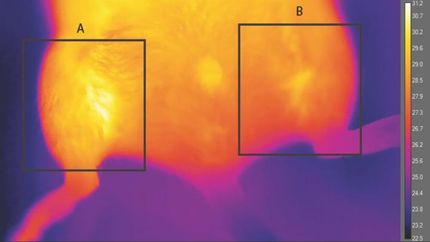Mouse stem cell study offers new insights into body fat distribution
Advertisement
New research presented at the UK National Stem Cell Network Annual Science Meeting in Nottingham shows that adding fat to mouse stem cells grown in the lab affects their response to the signals that push them to develop into one or other of the main types of fat storage cells – subcutaneous (under the skin) or visceral (around the organs).
Visceral fat – the so-called "pot-belly" – indicates a much higher risk of cardiovascular disease and type 2 diabetes than subcutaneous fat. This discovery will help us to understand the fundamental biology underpinning these two major causes of obesity-related morbidity and mortality in the developed world. During development, some groups of stem cells will go on to become adipose cells – the large globular cells that store and metabolise fats from our diets.
This research suggests that the distribution of visceral versus subcutaneous adipose cells is at least in part down to the nutrition available to stem cells during the early stages of development. The study, led by Professor Kevin Docherty of the University of Aberdeen, found that adding palmitate (a major component in palm oil) to mouse stem cells affected how they responded to androgen and oestrogen - the sex hormones which normally control the types of fat cells that stem cells become.
Professor Docherty said "This finding is an important insight as it suggests that nutrition in early development can affect how and where fat is stored in later life. We've known for a while that having a pot-belly suggests someone's risk of developing type 2 diabetes and heart disease is high, but there is still a lot to learn about why body fat distribution varies so much between people. Our research helps by putting another small piece into the puzzle. "Type 2 diabetes used to be a disease that struck people in later life, but in the UK and some other developed countries we're seeing a worrying increase of this problem amongst overweight teenagers and younger adults. In the UK, 30% of teenagers are overweight or obese so it's crucial that we understand the fundamental biology of weight-related diseases so that we can develop better ways of preventing, treating and managing this serious problem."
The researchers hope that this study might lead to new insights into how to combat type 2 diabetes and cardiovascular disease. Professor Docherty concluded: "The number one way of reducing the number of overweight people is improving diet and encouraging exercise, but we hope our research might eventually offer insights that lead to new treatments including drugs to reduce these high-risk fat stores around organs."



























































